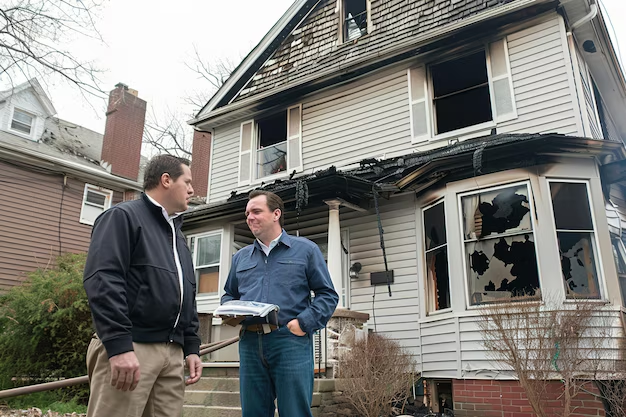Your Guide to Section 8 Housing Pittsburgh Pa
What You Get:
Free Guide
Free, helpful information about Affordable Housing FAQ and related Section 8 Housing Pittsburgh Pa topics.
Helpful Information
Get clear and easy-to-understand details about Section 8 Housing Pittsburgh Pa topics and resources.
Personalized Offers
Answer a few optional questions to receive offers or information related to Affordable Housing FAQ. The survey is optional and not required to access your free guide.
Understanding Section 8 Housing in Pittsburgh: What You Need to Know
Finding an affordable home in Pittsburgh, like many urban areas, can be a daunting task. For those in need of financial assistance, Section 8 Housing, also known as the Housing Choice Voucher Program, offers a lifeline. This federally funded program helps low-income individuals and families pay for housing, giving them the flexibility to choose where they live rather than being restricted to specific public housing projects.
How Does Section 8 Housing Work?
The Section 8 program is designed to make housing more affordable by subsidizing rental costs based on your income. Participants pay 30% of their adjusted monthly income towards rent, while the voucher covers the rest. In Pittsburgh, this program is managed by the Housing Authority of the City of Pittsburgh (HACP).
Eligibility Criteria
To qualify for Section 8 assistance in Pittsburgh, applicants must meet certain criteria:
- Income Limits: Your income must fall below a specified threshold, which can vary based on family size and city-specific guidelines. Generally, your income must be at or below 50% of the median income for Allegheny County.
- Family Composition: Your family structure can include single individuals, elderly, families, or disabled persons.
- Background Check: It’s essential to have a clean criminal record, as certain criminal histories may disqualify applicants.
The Application Process
Applying for Section 8 can be competitive due to high demand and limited funding. Here’s a simplified breakdown of the process:
- Application Submission: Submit an application to HACP when the waiting list is open. Due to high demand, the waiting list for vouchers often closes shortly after opening.
- Waiting List: Once your application is accepted, you'll be placed on a waiting list, which can take months or even years due to high demand.
- Voucher Issuance: Once at the top of the waiting list, you’ll receive a voucher and can begin searching for housing that accepts Section 8 within the specified time.
Beyond Housing: Other Financial Assistance Opportunities
Exploring financial stability can extend beyond housing. Pittsburgh residents may also benefit from a variety of financial assistance programs and opportunities designed to improve quality of life and financial health.
Additional Government Aid Programs
- SNAP Benefits (Food Assistance): Helps low-income Pittsburgh households afford groceries.
- LIHEAP (Low-Income Home Energy Assistance Program): Assists with home energy bills, ensuring homes remain heated during winter.
Financial Assistance & Debt Relief
- Credit Counseling: Organizations in Pittsburgh offer services to help manage debt and improve credit scores.
- Debt Relief Programs: These can negotiate with creditors to reduce what you owe or consolidate loans into more manageable payments.
Educational Grants and Opportunities
- Pell Grants: Available for students pursuing higher education, covering expenses like tuition and books without repayment.
- State-Specific Scholarships: Pennsylvania offers various scholarships and grants based on need and academic performance.
Leveraging Community Resources
For those seeking section 8 housing or other forms of assistance, tapping into local resources can provide invaluable support. Community programs often work in tandem with government initiatives to offer holistic support packages tailored to individual needs.
Quick Reference: Resources and Programs
- 🏠 Housing Authority of the City of Pittsburgh (HACP): Your go-to for Section 8 applications and inquiries.
- 🛒 SNAP Benefits: Apply through the PA Department of Human Services.
- 🔌 LIHEAP: Helps cover energy costs; check with local energy providers for application details.
- 📚 Pell Grants: Start by filling out the FAFSA to determine eligibility.
- 💸 Credit Counseling Services: Contact local non-profits for free or low-cost advice.
- 🌟 Scholarships & Grants: Visit Pennsylvania’s Department of Education for a comprehensive list.
Navigating the landscape of financial assistance can seem overwhelming, but with the right information and resources, Pittsburgh residents can find the support they need to thrive. Whether it’s securing stable housing or exploring educational opportunities, knowing what's available is the first step towards building a brighter future.
What You Get:
Free Affordable Housing FAQ Guide
Free, helpful information about Section 8 Housing Pittsburgh Pa and related resources.

Helpful Information
Get clear, easy-to-understand details about Section 8 Housing Pittsburgh Pa topics.

Optional Personalized Offers
Answer a few optional questions to see offers or information related to Affordable Housing FAQ. Participation is not required to get your free guide.


Discover More
- 1 Bedroom Apartments For Rent In Chicago For $700
- 1 Bedroom Apartments That Accept Section 8
- 2 Bedroom Apartments For Rent In Chicago For $700
- 2 Bedroom Apartments For Rent In Philadelphia $600
- 2 Bedroom Apartments San Diego
- 330 Newtown Apartments
- 6 Bedroom House For Rent
- 600 Lofts Apartments
- Abilene Housing
- Abilene Housing Authority
